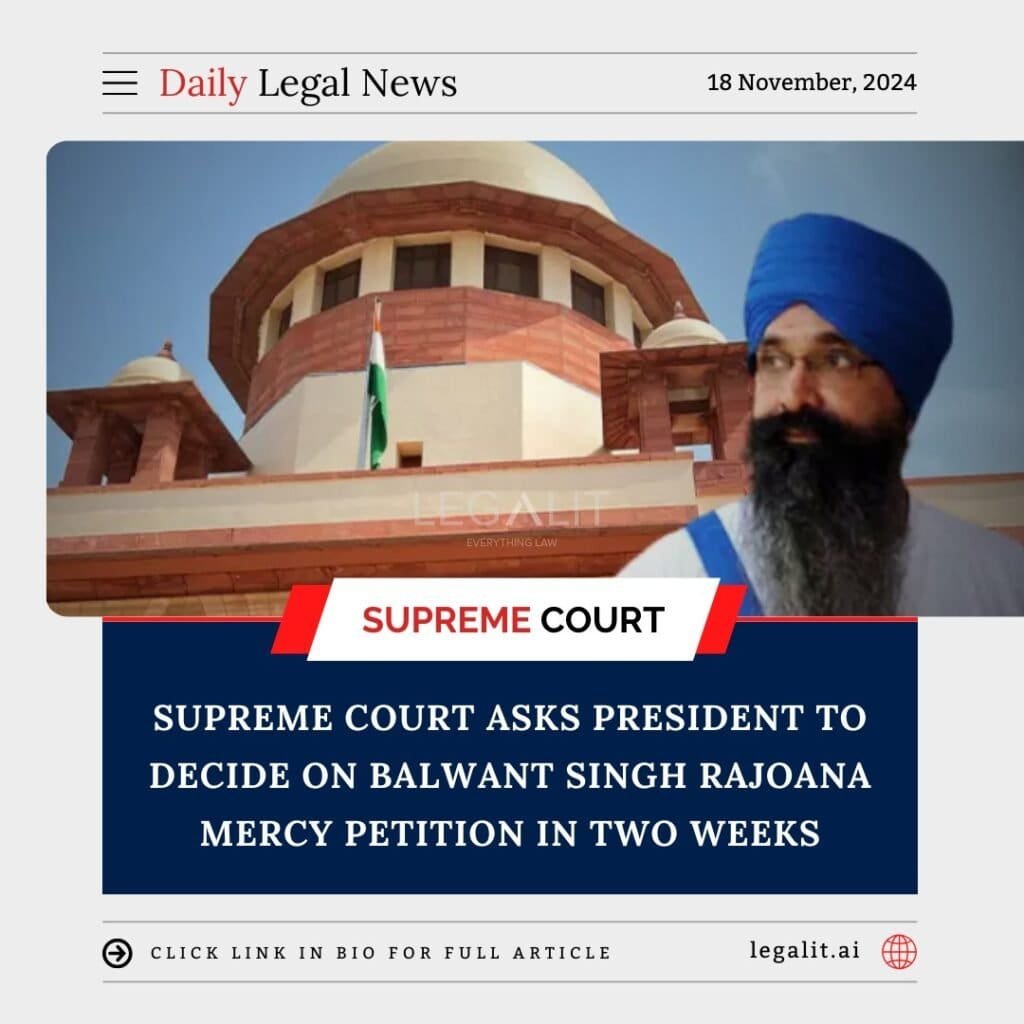
The Supreme Court of India has directed the President of India to take a decision on the mercy petition filed by Balwant Singh Rajoana, a convict in the assassination of former Punjab Chief Minister Beant Singh, within two weeks. This order comes after the court reviewed the case and considered the delay in deciding Rajoana’s mercy plea.
Background:
Balwant Singh Rajoana was convicted for his role in the 1995 assassination of Beant Singh, a prominent political figure in Punjab. Rajoana was sentenced to death for his involvement in the bombing that killed Beant Singh and others. His death sentence, however, has been under a prolonged stay due to his mercy petition pending before the President of India.
Rajoana’s petition for clemency was filed after the Punjab government recommended his release, citing his good conduct and the long period of time he had already spent in jail. Despite this, there has been significant delay in processing the petition, leading to the current order by the Supreme Court.
Court’s Decision:
The Supreme Court, while hearing the matter, acknowledged the long delay in the President’s decision regarding Rajoana’s mercy petition. It stressed the need for a timely resolution and directed that the petition be decided within two weeks. The court emphasized that the matter had already been pending for a considerable amount of time, and it was imperative to ensure that justice was delivered without further delay.
This ruling indicates the court’s desire to ensure that mercy petitions, especially those involving the death penalty, are dealt with expediently to avoid unnecessary prolongation of legal processes.
Legal and Political Implications:
- Clarity on Mercy Petition Process:
The Supreme Court’s direction to the President sets a clear timeline for the resolution of mercy petitions, especially in cases involving death row convicts. This move aims to reduce the uncertainty surrounding such cases and expedite the decision-making process. - Political Reactions:
The case of Balwant Singh Rajoana has significant political and regional implications, particularly in Punjab, where the case has drawn attention from various political groups. The decision could have a bearing on the political dynamics in the state, given the nature of the crime and its impact on public sentiment. - Human Rights Concerns:
The case also raises important human rights questions related to the application of the death penalty and the process of granting clemency. Rajoana’s supporters argue for his release, citing his lengthy imprisonment and the political circumstances surrounding his conviction.
Conclusion:
The Supreme Court’s directive for the President of India to decide on Balwant Singh Rajoana’s mercy petition within two weeks marks a significant step in ensuring that such matters are resolved without undue delay. The outcome of this petition will have far-reaching consequences for the legal and political landscape, especially in Punjab.